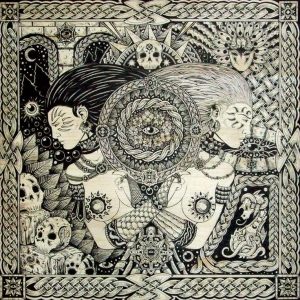The ancient Egyptian concept of duality can be seen, which means that everything exists also in its complementary form. Nothing existed isolated, only for itself. Egypt Dualism Duality explains the theory of knowledge by the confrontation of two different realities, subjective or objective; the religious cosmos in the terms of a perpetual conflict between good and evil, which has always existed.

In hieroglyphs, this concept is indicated by the use of a double logogram or determinative, and by the addition of the single consonant sign for the sound “y” (“wy” for a male noun and “ty” for a female noun).
The Nile could be seen in a life/death aspect, for as Heredotus quotes “Egypt is the gift of the Nile”.
The actual land of Egypt also reflects the two aspects of Ra, from the life giving silts deposited each year, the cultivated strips of land either side of the Nile (The Black Land) and the desert (Deshret the Red Land), a place of inhospitable terrain, a place of emptiness, it was also the places where the dead were buried, as the land that the people lived on was required for the growing of crops. So the desert is in contrast to the busy and ordered world of the ancient Egyptians.
The Shadow (shwt) was also believed to be a living, essential part of the individual. Now, we must realize that in a country such as Egypt, the shadow can be a blessing and protection from the burning rays of the sun. It was also seen as an entity with power, and which could move at great speed.
Explanation of Egypt Dualism Duality
The dualism theme is expressed again in the ancient Egyptian religion with the legendary battle between Osiris and Set or Seth. Osiris, the grain god, was considered by some the corresponding person of Re after death. He was crucial to Egyptian agriculture; therefore, every king was the divine embodiment of Horus in life and became Osiris after death. From this evolved the Osirian legend found in the Pyramid Texts to be later popularized and embroidered by the renowned Greek writer Plutarch.